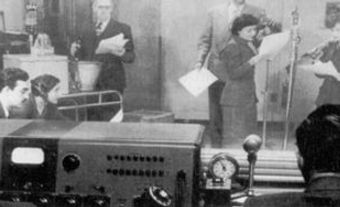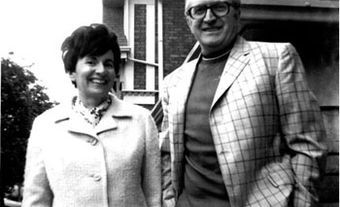Festival TransAmériques (former Festival de Théâtre des Amériques) (FTA)
Festival TransAmériques (formerly the Festival de Théâtre des Amériques) (FTA). The Festival de Théâtre des Amériques, established in 1985, changed its name and its mission in 2007 to reflect the inclusion of dance follwoing the demise of the Festival international de nouvelle danse (FIND, 1982- 2003). As a result, the event, which was held biennially for its first twenty years, became an annual one. Cofounded by Marie-Hélène Falcon, the general and artistic director since its inception, the FTA is the biggest contemporary creative festival held in Montréal, and each edition offers the cream of the international avant-garde crop in theatre, and now dance, to increasingly large and sophisticated audiences.
Intended as a window on the world for modern day Québec, the Festival de Théâtre des Amériques from its beginnings set itself the task of becoming a major cultural event, not only in Montréal, but also in North America. It was initially dedicated to theatre in North and South America, but soon opened its doors to other continents, particularly to Europe, making Montréal a key meeting place for the world's most daring and innovative artists. The FTA introduced Peter Brook, Tadeusz Kantor, Ariane Mnouchkine, Peter Sellars, Robert Wilson, Romeo Castellucci, Alain Platel to Montreal audiences, some returning more than once in different shows. Over the years, the Festival de Théâtre des Amériques has welcomed companies from Germany, Belgium, France, Great Britain, Italy, Poland, Romania, Russia, China, Vietnam, Argentina, Brazil, Mexico and elsewhere.
In addition to supporting Québécois and Canadian creators through co-productions, the FTA has always been an international showcase, welcoming eager producers, broadcasters and journalists from all over. Our key theatre figures such as Robert LEPAGE, Denis MARLEAU, Wajdi MOUAWAD, Gilles Maheu, Paula de Vasconcelos and Pol Pelletier, were able to use this incredible springboard to gain wider audience recognition and increase international dissemination of their work. In 1997, the FTA inaugurated La Nouvelle Scène, a section devoted to young companies and Québec's most innovative artists. The previous year, it set up Théâtres du Monde, a smaller scale event that provided performances from abroad between the festival's regular offerings.
Investing in all Montréal's cultural sites, not just those devoted to the performing arts, and presenting free performances in public places, the Festival de Théâtre des Amériques has experienced amazing highs and lows. Those fortunate to have attended the premiere of Robert Lepage's The Dragon's Trilogy (1987) in a hangar in Montréal's Old Port, and Claudel's presentation of L'Annonce faite à Marie, directed by Alice Ronfard, in the Chapelle du Grand Séminaire, (1989) will have lasting memories. Among the FTA's successes was the arrival of Ariane Mnouchkine's Théâtre du Soleil with the imposing performance of Les Atrides, at the Aréna Maurice-Richard in 1992. Over the years, many FTA shows were awarded the prix de la critique and Masques by the defunct Académie québécoise du théâtre.
The precision of its programming, always focussing on artistic quality and originality, the unconditional boldness and the urgency of opinions on hot topics (despite the critics to whom they were sometimes addressed), has allowed the Festival de Théâtre des Amériques to maintain its reputation for excellence. By uniting dance and theatre, the Festival TransAmériques responds to the evolution of contemporary artistic standards where disciplines mesh and blur, crossbreeding back and forth. The multilingual and multidisciplinary FTA is an essential meeting place that gives rise to exchanges between artists and audiences, and among professionals in the arts communities through workshops, public debates, and discussions.

 Share on Facebook
Share on Facebook Share on X
Share on X Share by Email
Share by Email Share on Google Classroom
Share on Google Classroom


